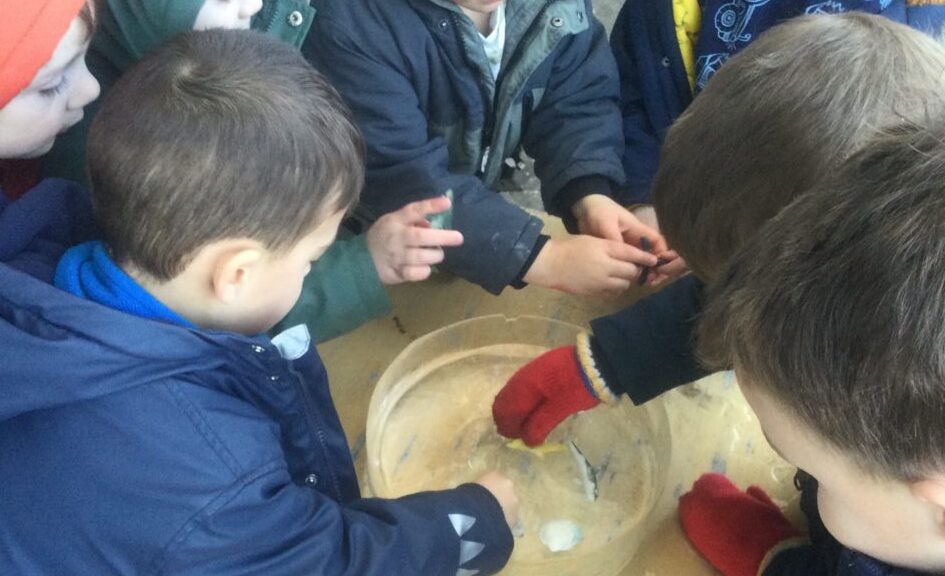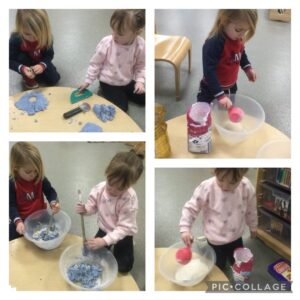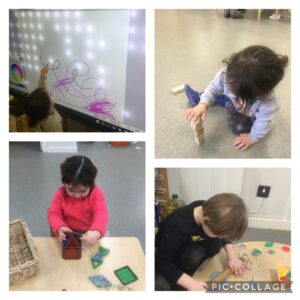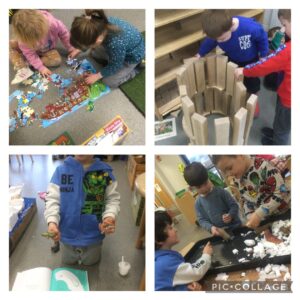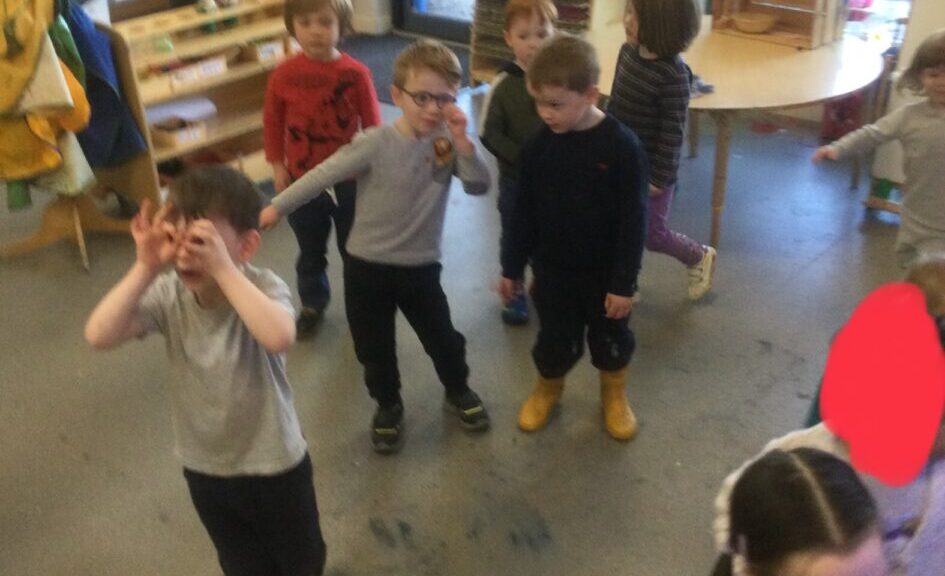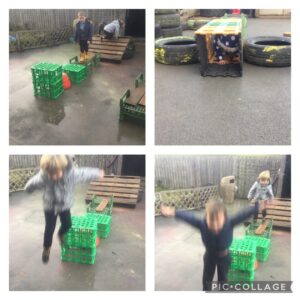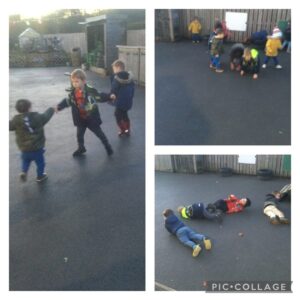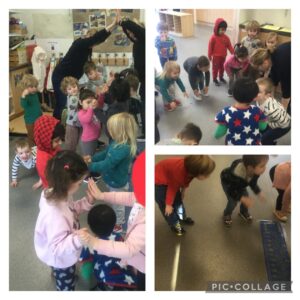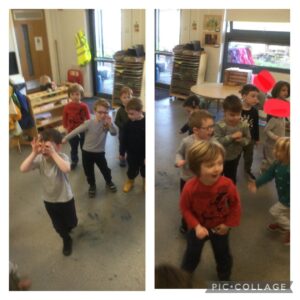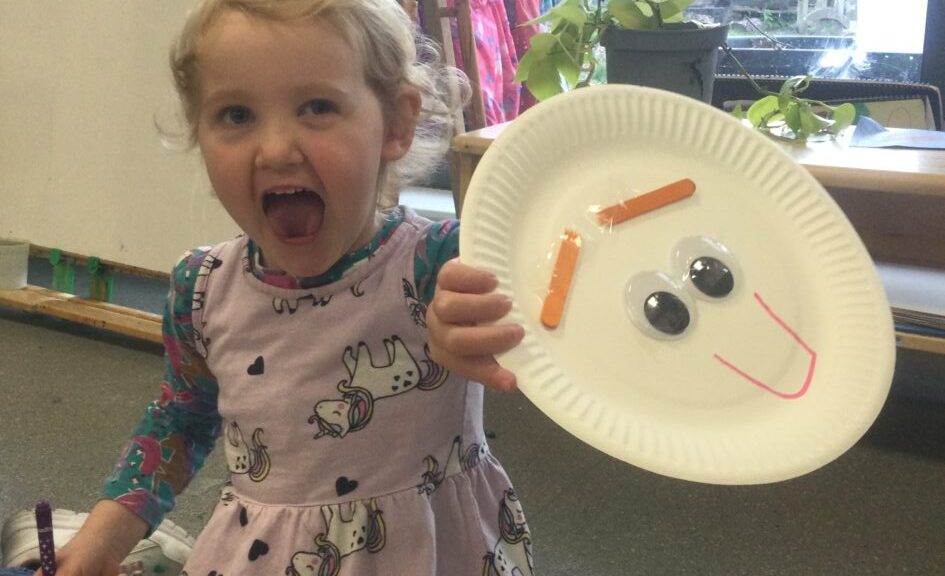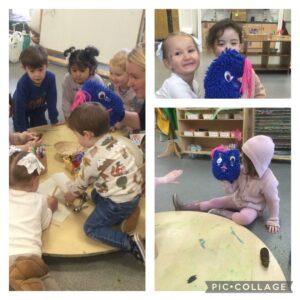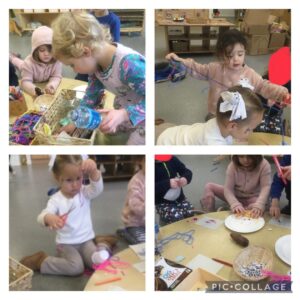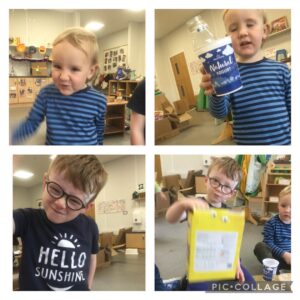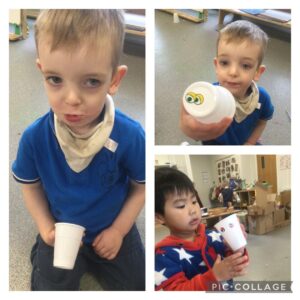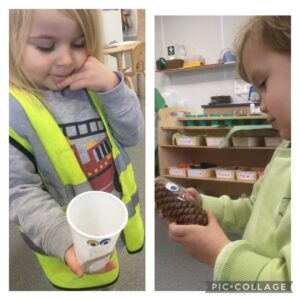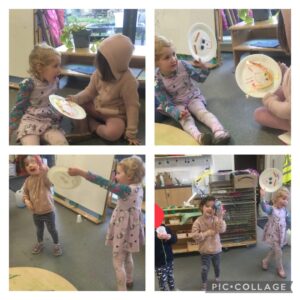Last week in our playdough area we were celebrating Book Week Scotland by reading “Superworm”.
Engaging with our favourite stories and finding joy in reading helps to strengthen our children’s literacy skills and comprehension abilities whilst having fun. Reading books with our children also helps them to enhance their cognitive abilities such as memory retention, critical thinking and problem solving.
Today we had the curiosity cube in our playdough area and who was inside? Our very own Superworm!

We made pink playdough and had a go at creating our very own Superworm. We used some of our dough disco moves we have been practicing to help us roll the playdough into a sausage to make our Superworm .
We found some googly eyes and some sticky stickers to add to our Playdough just like the real Superworm .
We enjoyed making our Superworm and some of our children even wanted to make lots of friends for Superworm.
We counted them as we made them, promoting our numeracy learning through our play experiences.
Our older children wanted to make different characters from the story. Some children chose their favourite baby toad to create.
We decided to retell the story of Superworm using our playdough creations. Some of us decided to change the story and create their own.

We had Super worm with his friends, Superworm saving the princess in the castle, Superworm with the zoo animals and Superworm the flying worm.

We shared our ideas with our friends and discussed different characters and events in our story. Storytelling provokes conversations between our children of different ages and stages of development.
Here is a look at some of our own Superworms.
We read the story of Superworm and used Superworm and one of our playdough toads to help retell the story.

“Superworm is super long.”
”Superworm is super strong.”
“watch him wiggle.”
”see him squirm.”
”Hip hip hooray for Superworm.”
I wonder what characters from our favourite stories will be in our curiosity cube tomorrow? Don’t forget to help yourself to a book at our front door to share with your children at home as part of our Book week Scotland.














